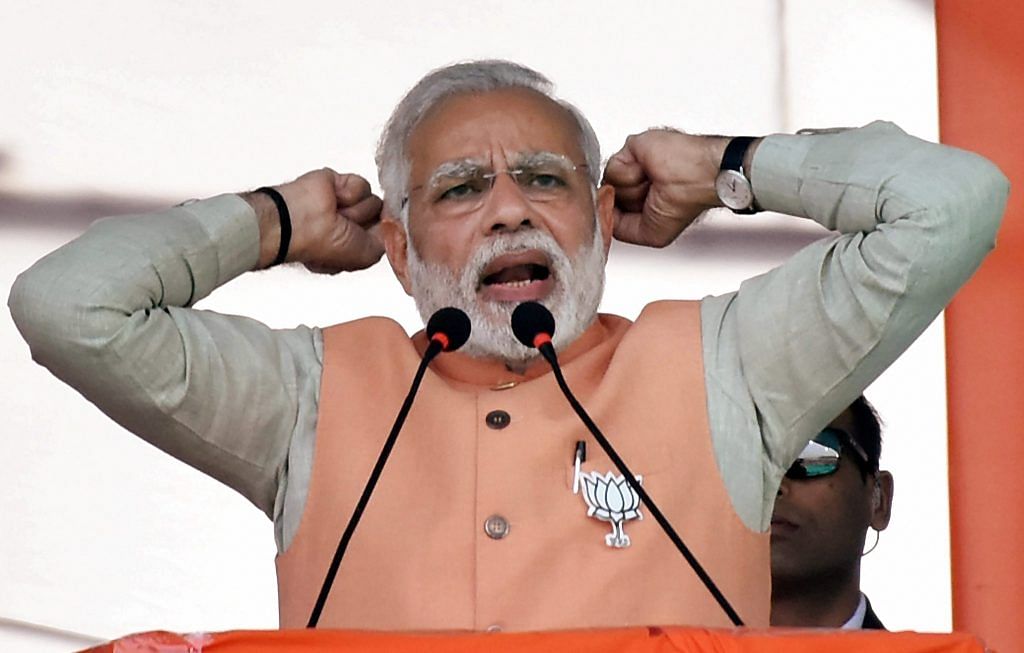In this tussle between the collegium and the government, the judiciary has failed to stand up and defend itself so far.
Barely six months after coming into power, Prime Minister Narendra Modi government began its first ambitious project – to reform the judiciary. It is perhaps the only issue on which the opposition fully supported the government from the start.
But the National Judicial Appointments Commission (NJAC) was derailed by the Supreme Court.
The Attorney General at that time, Mukul Rohatgi, advised the government to drop its plans for the time being after the verdict. Once again, the collegium of five top judges was supreme.
But even four years later, the failure to bring about judicial reforms is perhaps one of Modi government’s biggest frustrations.
However, in the last six months, the government has made renewed attempts to reclaim its role in the appointment of judges. This is evident in its series of confrontations with the collegium. But crossing the collegium is the illegitimate way to attempt judicial reforms. It undermines judicial independence and weakens the institution.
The first confrontation was over the appointment of P. Krishna Bhat as judge of the Karnataka high court. The government was sitting on the recommendation since 2016 but in March asked the Karnataka high court chief justice Dinesh Maheshwari to start a fresh probe into allegations of sexual harassment against Bhat, bypassing the collegium. This was after the collegium had given Bhat a clean chit.
An angered Justice Chelameswar shot off a letter to CJI Dipak Misra that Maheshwari was bidding for the executive behind the judiciary’s back. Although Maheshwari quietly closed the probe he initiated, it alarmed the judiciary.
Just a month later, even before the dust settled, the government sent back the collegium’s recommendation to elevate Uttarakhand high court chief justice K.M. Joseph as judge of the Supreme Court. The government said Joseph’s appointment ignores regional representation and seniority – reasons it had conveniently ignored for other appointments since it came to power.
The latest is the government’s decision to return the collegium’s recommendation even after it reiterated its decision to appoint two Muslim advocates – Basharat Ali Khan and Mohammad Mansoor – as judges of Allahabad high court after sitting on the file for over two years. The government’s move is contrary to the Second and Third judges’ case that validated the collegium system of appointing judges.
On the Memorandum of Procedure (MoP) issue, the document that guides the procedure for appointment is yet to be finalised over what appears to be flimsy reasons.
Law minister Ravi Shankar Prasad who has met the CJI to discuss institutional issues, for reasons unknown, has addressed the latest communication on the MoP to the SC registrar, instead of the CJI.
Misra has conveniently deemed it unnecessary to respond to that communication and maintains that as far as the court is concerned, the MoP is finalised. The government, argues that there are still some aspects of the MoP that have to be finalised.
In this tussle between the collegium and the government, the judiciary has also failed to stand up and defend itself so far. CJI Misra-led collegium has failed to reiterate its decision on appointing Joseph.
The CJI has not even responded to letters written by Justices Jasti Chelameswar, Kurian Joseph, Madan B. Lokur and Ranjan Gogoi – the four other judges in the collegium.
Public perception of the judiciary has nosedived, especially after the open rift between top judges of the court. In 2016, then CJI T.S. Thakur lamented on the situation with tears in his eyes. At that time, there was sympathy for the plight of the judiciary when he said half of India’s courts were vacant.
Now, the stalemate on judicial appointments is just another news item that is forgotten by the end of the day. Like senior advocate Raju Ramachandran said, the collegium’s inaction does give the government an opportunity to label it an indecisive and inefficient body.
The situation is a perfect recipe to bring an NJAC-like law again. But crossing the collegium constantly does no good to the democracy. After all, for any government, control over a weak institution that has lost its legitimacy does no good.
